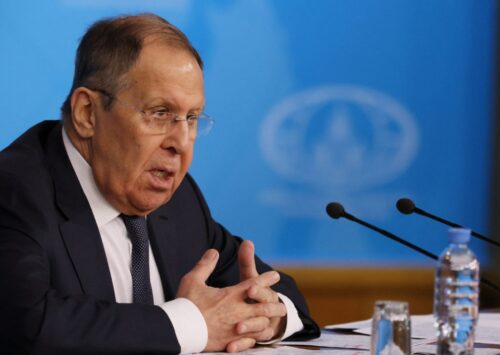
Iran’s response to its opponents and the strained of relations with Pakistan: What can Armenia do?
Iran carried out airstrikes on a number of targets located in the territory of three neighboring countries: Syria, Iraq and Pakistan. In Iraq, Iran attacked a number of Israeli Mossad targets, as well as Islamic State militants.
The fighters of the Turkey-backed terrorist organization, West Turkestan Vilayet, were faced with the Iranian strikes in Syria. Let us note that this terrorist organization has mainly operated in China. The group is comprised mainly of Uyghurs, a Turkic ethnic group, who are seeking independence from China of the territories inhabited by the Turkic-speaking population. The group appeared in Syria as an instrument in the hands of Turkey for its expansionist ambitions.
With its strikes in Syria and Iraq, Iran showed that the hoisting of the “red flag of revenge” was not to no purpose, and this was a serious geopolitical message to Israel, the U.S. and Turkey. By attacking the pro-Turkish and anti-Chinese forces, Iran also wanted to show China that they have common geopolitical opponents.
However, putting all this aside, an important question arises as to why Iran made strikes on Pakistan after which the Pakistani authorities announced that the Iranian attacks would certainly not go without consequences and made strikes on the territory of Iran.
Taking a careful look at the statements of the ministries of foreign affairs of both countries, we can see that they are very similar. The sides accuse each other of a failure to respect each other’s sovereignty; each side claims that its strikes were aimed at terrorist organizations seeking to prevent their hostile actions. Pakistan seems to have taken mirror actions against Iran in order not to appear as a weak state and to prevent further similar strikes by Iran.
However, an objective analysis of the situation shows that Iran really attacked a terrorist organization called Jaish al-Adl, meaning “Army of Justice”. This organization has been fighting for the independence of Balochistan, which is divided into western and eastern parts, with the western part being in the territory of Iran, and the eastern part in the territory of Pakistan. The organization had been attacking the Iranian border guard and police forces from the territory of Pakistan in recent times, inflicting casualties and injuries on the Iranian side. Thus, it turns out that Iran had the right to attack the targets of this terrorist organization located in the territory of Pakistan.
Pakistan is a terrorist-breeding country, and we cannot rule out the possibility that it may support terrorists to destabilize Iran. The thing is Pakistan finds itself in a difficult geopolitical and economic situation: manufacturing companies and industries have been closing down, resulting in the country’s increased dependence on foreign imports and China-Europe transit through the Pakistani Gwadar Port. Now that Yemen’s Houthis, which are considered to be a pro-Iranian organization, have destabilized the Bab el-Mandeb Strait — the shortest sea route from Europe to the east passes through this strait — the China-Europe transit through Pakistan has appeared in a vulnerable position. Pakistan has even sent warships there to ensure the safety of cargo ships passing through that strait. It would be in the interests of Pakistan if Iran got into a crisis situation, as the unstable situation there could deter Iran from supporting Yemen’s Houthis; thus, the U.S. and the U.K. would stabilize the situation in the Bab el-Mandeb Strait, which would boost the performance of the China-Europe transit through Pakistan. Moreover, this unstable situation may also badly affect the International North–South Transport Corridor passing through Iran, on which Pakistan’s strategic opponent, India, has a great dependence.
Both Iran and Pakistan have said their strikes were not aimed at each other’s sovereignty or territorial integrity, but at terrorist organizations: Iran’s target was Jaish al-Adl, while Pakistan aimed at the so-called Balochistan Liberation Front. The victims on both sides were not Iranian or Pakistani citizens, and this is a reason for both sides not to come into an all-out conflict. Neither Iran nor Pakistan wants a full-scale conflict, as both are facing serious geopolitical problems, which, however, does not suggest that the sides will not continue to wage proxy wars against each other.
It is obvious that Pakistan’s interests, one way or another, coincide with those of the West, while it is against Armenia’s interest that Iran’s opponents somehow manage to destabilize the country.
When we analyze the interests of Pakistan, the issues underlying the reasons why this country does not recognize the sovereignty of Armenia and unconditionally supports Azerbaijan become clear. The problem here does not simply lie in the religious views of Pakistan, but in the fact that Armenia may become the Indian alternative to communication links passing through the territory of Azerbaijan from the north to the south. If Armenia relinquishes control over Syunik to the allies of Pakistan, i.e. the Turkish-Azerbaijani tandem, Pakistan’s opponents, i.e. India and Iran, will lose this important alternative communication route and will become somewhat dependent on Pakistan’s allies.
Ashot Barekyan



